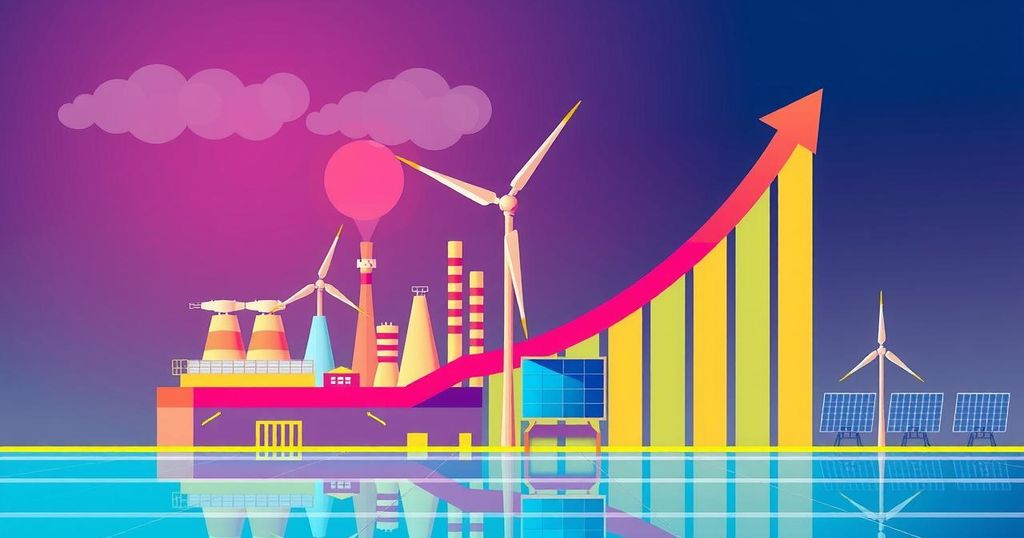AI Chip Manufacturing’s Environmental Impact in East Asia and Misinformation Concerns

Greenpeace East Asia’s report highlights a 350% increase in electricity consumption for AI chip manufacturing since 2023, jeopardizing climate goals in the region. Reliance on fossil fuels exacerbates this issue, with a forecasted increase in consumption that may match Ireland’s total. Concurrently, skepticism surrounds an AI-generated paper denying climate change, raising concerns of misinformation and the need for regulatory measures in AI technologies.
Recent findings from Greenpeace East Asia underscore a troubling trend in electricity consumption associated with artificial intelligence (AI) chip manufacturing, which has surged by 350% since 2023. This increasing demand places significant strain on East Asia’s climate goals, particularly in countries like Taiwan and South Korea, notorious for their semiconductor hubs. The report indicates that fossil fuels are becoming the primary energy source for many manufacturing plants, jeopardizing the region’s environmental targets.
The report reveals a startling forecast: by the end of the decade, electricity consumption for AI chip production could rise 170-fold, matching the national consumption of Ireland. This facilities’ escalating demand reflects a broader trend where Asian countries are expanding fossil fuel capacities to meet the needs of the semiconductor industry, with Taiwan leading the establishment of new power generation plants.
Though transitioning to renewable energy sources presents a viable alternative, the report warns that reliance on fossil fuels could severely compromise environmental sustainability. Greenpeace urges the semiconductor industry to prioritize investments in wind and solar energy to mitigate the climate impacts of their operations. Prominent firms like Nvidia and AMD have been implicated in the environmental challenges posed by their supply chains in Asia, advocating for a sustainable energy shift.
In a related context, a separate investigation has uncovered flaws in an AI-generated paper that denies climate change, raising concerns among researchers. The paper presents itself as an objective assessment of human-induced global warming but has been criticized for its lack of scientific rigor. With a dubious background attached to several co-authors known for their climate skepticism, experts highlight the paper’s failure to disclose its underlying prompts used in the AI’s data analysis, drawing further skepticism about its purported neutrality.
The rapid advancement of AI technologies is ushering in significant regulatory challenges, as highlighted by the World Economic Forum. Growing concerns over misinformation generated through AI are prompting calls for more stringent oversight. In particular, the healthcare sector is particularly on alert, urging thoughtful integration of AI technologies to uphold data integrity. To ensure AI systems operate effectively and lawfully, the implementation of enterprise blockchain systems is suggested, aiming to enhance data quality while safeguarding ownership and security.
The alarming increase in electricity consumption for AI chip manufacturing in East Asia poses a significant threat to climate sustainability goals as the region exacerbates its reliance on fossil fuels for energy. Leading semiconductor manufacturers have been called upon to transition to renewable energy sources to mitigate environmental impacts. Concurrently, the emergence of AI-generated content that undermines scientific consensus raises essential questions regarding the integrity and objectives of AI systems. Ultimately, strategic regulatory measures are necessary to address the risks associated with the advancement of AI technology.
Original Source: coingeek.com




